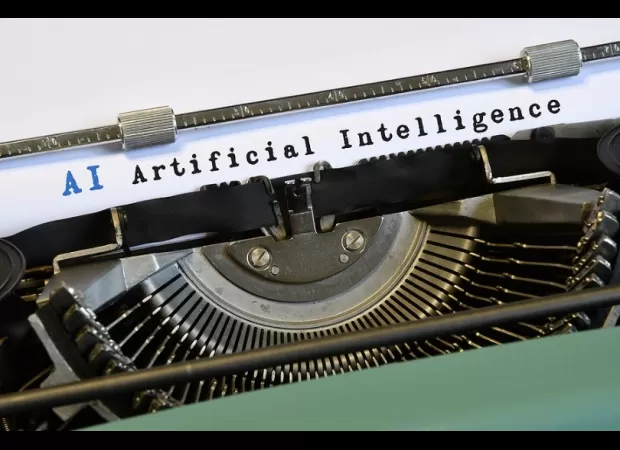AI machines may replace the need for human writing, but won't kill it.
For 6 months I searched for an answer to my existential crisis - and I think I found it.

Is AI a threat to the jobs and careers of writers? Over the last few decades, the impact of technology on the workforce has been immense. We can look to the accounting profession as an example. In 1979, the Apple ll computer was released with VISICALC, an electronic spreadsheet. Suddenly, professional bean counters had an existential crisis on their hands: was the PC spreadsheet software going to replace them?
BBC News reported that since the 1980s, the number of accounting clerks has dropped by 400,000, while the number of accountants has increased by 600,000. This shows that AI can impact the writing industry in the same way. Some jobs may be lost, while others may grow.
AI has the power to create content at a scale never seen before, and what used to take hours can now be done in minutes. This has led to a debate about quantity versus quality. But there is more to the writing story than just this. It is about the tension between industrial-scale media production and the writers’ inspiration. It is also about man versus machine.
So why do writers write? When I was writing at school and college, I wrote to pass exams and assignments. It was a chore. When I started writing for my social media blog in 2009, it was no longer a job. Writing was a passion, driven by curiosity about social media and its impact on humans and business. It was an education, coming from my heart and not my head.
But with the rise of AI, I have been struggling with questions. How can a mere human compete with the computer, machine learning, algorithms, and data collection superpowers of AI? How can I find a way to use AI to empower me, rather than make me feel like a cut-and-paste machine? Have I lost the spirit and soul of a writer?
But there is more to writing than just information gathering and publishing. People write for a multitude of reasons, driven by various motivations and purposes. Writing is a powerful tool for communication, an outlet for self-expression, and a means to showcase creativity. It is also a method of documentation and record-keeping, and a way to share information and educate others. Writing can be used to persuade and advocate for causes, and to entertain and tell stories. It has an important role to play in professional and business contexts.
These reasons are not exhaustive, and individuals may have unique personal motivations that drive them to write. Writing is a versatile and powerful medium that fulfills multiple purposes, allowing individuals to express themselves, communicate with others, and contribute to the vast tapestry of human expression.
So why do I write? For the last 6 months, I have been asking myself this question. It seemed like AI was offering an alternative that promised a quick fix to my writing and publishing needs. But I think I have found the answer.
Joseph Campbell said it best: “The important thing about information and the way that I got it is not the information but the experience of the information. It’s a love affair, really, of getting in touch with a world of thinking and experiencing that you can’t get from just the supply of information. In writing, of course, I need the information that I already know, and yet I want to know exactly what the page is and the book I got it from.”
For me, it is simple. At my core, I write to learn. I enjoy the process and the journey of discovery and exploring where the information comes from. I need to make sense of the noise and content chaos that sometimes overwhelms me.
ChatGPT may be able to scrape information quickly, but it doesn’t provide the “love affair” of discovery and learning that I get when I hunt and wrangle information into something that has clarity for me and for other mere mortals. I am trying to distill the complexity of a noisy, crazy world into simplicity that touches my soul and hopefully other people.
AI will certainly transform and evolve the art of writing. But extinction of the writer is still a dystopian threat that is more myth than truth.






